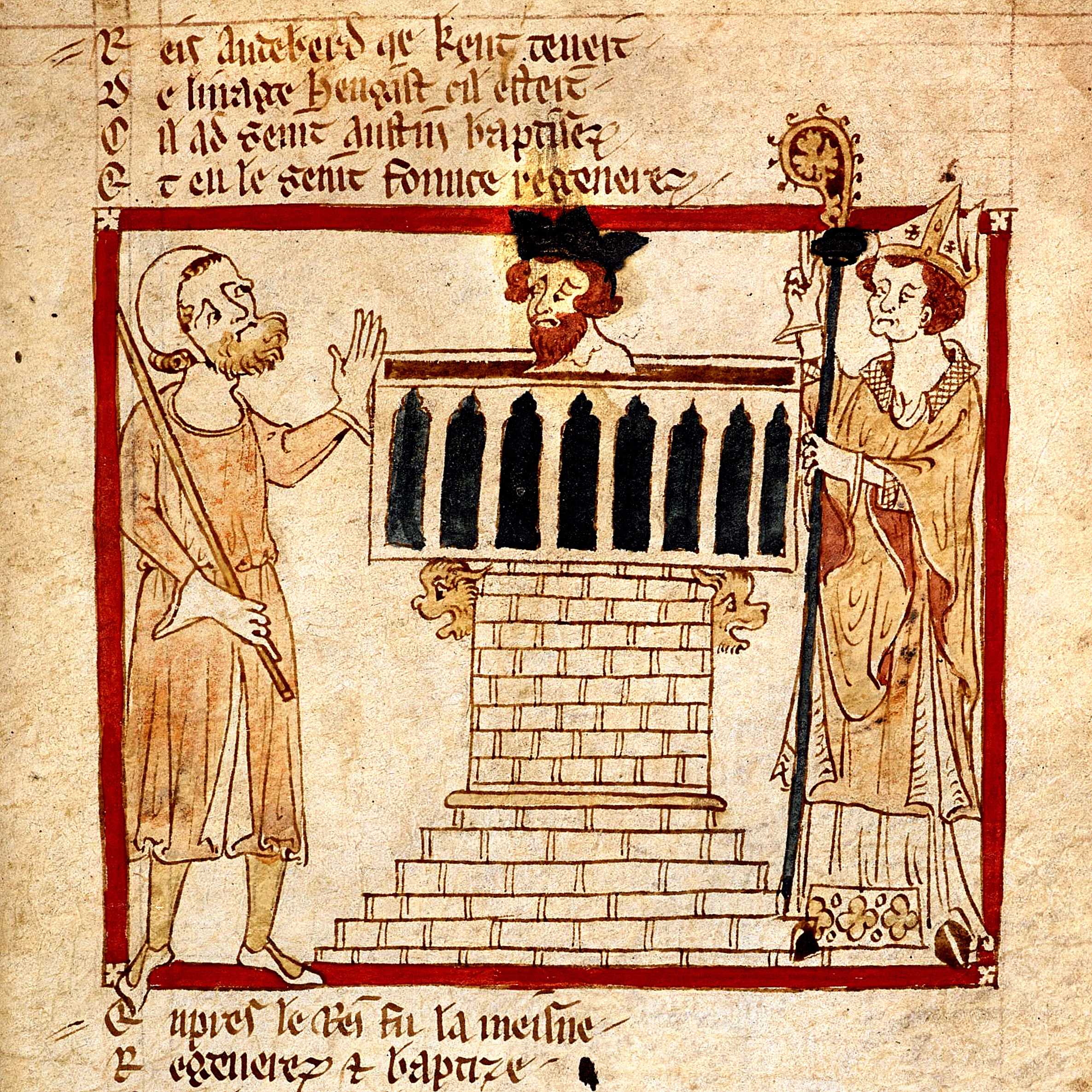 The Rune poem names two gods: Tiw and Ing. Three if you count Os which means god and describes Odin. If we set aside all the sacred trees, and we shouldn’t, we still have one more god mention: the holy king of heaven in the Year stanza, who must be the Christian god, unnamed. This Christian incursion into a poem full of non Christian deities, two named right out loud in answer to their stanza riddles, sometimes poses a different kind of riddle for Christian readers and translators. Perhaps duty bound to exalt their own, they often determine this is a Christian poem written by a Christian poet who would never allow heaven’s king to share an equal stage with other gods. This was a preference undoubtedly popular amongst Christian poets writing in Old English back in the day, so I can see the impulse. But I am here to encourage the … More
The Rune poem names two gods: Tiw and Ing. Three if you count Os which means god and describes Odin. If we set aside all the sacred trees, and we shouldn’t, we still have one more god mention: the holy king of heaven in the Year stanza, who must be the Christian god, unnamed. This Christian incursion into a poem full of non Christian deities, two named right out loud in answer to their stanza riddles, sometimes poses a different kind of riddle for Christian readers and translators. Perhaps duty bound to exalt their own, they often determine this is a Christian poem written by a Christian poet who would never allow heaven’s king to share an equal stage with other gods. This was a preference undoubtedly popular amongst Christian poets writing in Old English back in the day, so I can see the impulse. But I am here to encourage the … More
Tag Archives: Tree
Translating Beorc
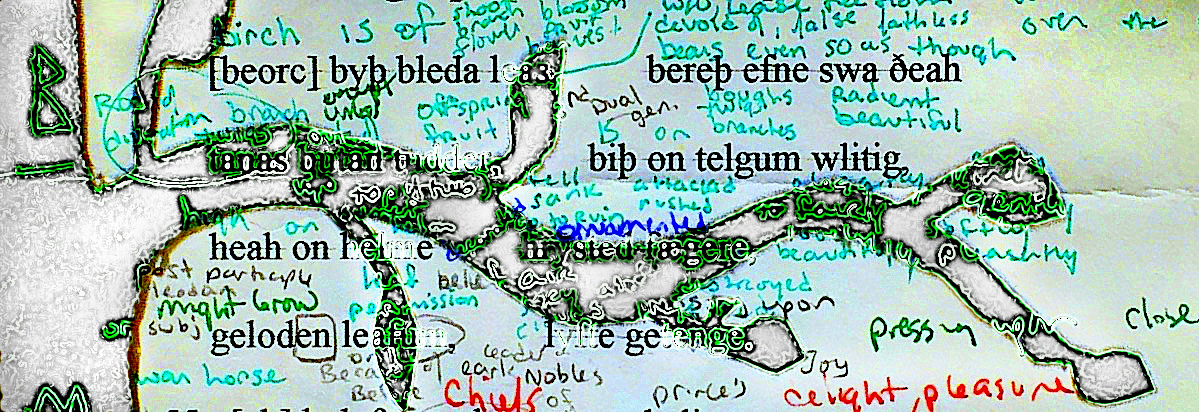 This stanza’s riddle is about a tree. There lives a whole forest of important trees in the Rune Poem; this one is hrysted fægere, beautifully adorned, fair and decorative with leaves lyfte getenge, pressing against the sky.
This stanza’s riddle is about a tree. There lives a whole forest of important trees in the Rune Poem; this one is hrysted fægere, beautifully adorned, fair and decorative with leaves lyfte getenge, pressing against the sky.
Why is this tree important? You can tell the future with this tree, that’s why. It has tanas, twigs for divination. There are lots of words for a twig including twig, also gerd, croh, hris, læl, spranca, sprota, spæc, sumorloda, telga. This particular word for twig, tanas, tan, is the only one that specifies they are used for divining the future. Tanas are special twigs, prophetic twigs. Which trees produces twigs so special you could carve a rune into them and find out what’s coming? Who would know that? You know who knows that, Tacitus knows that, that’s who. He visited the people who lived north of Rome, all the … More
I Sing This Wretched Song
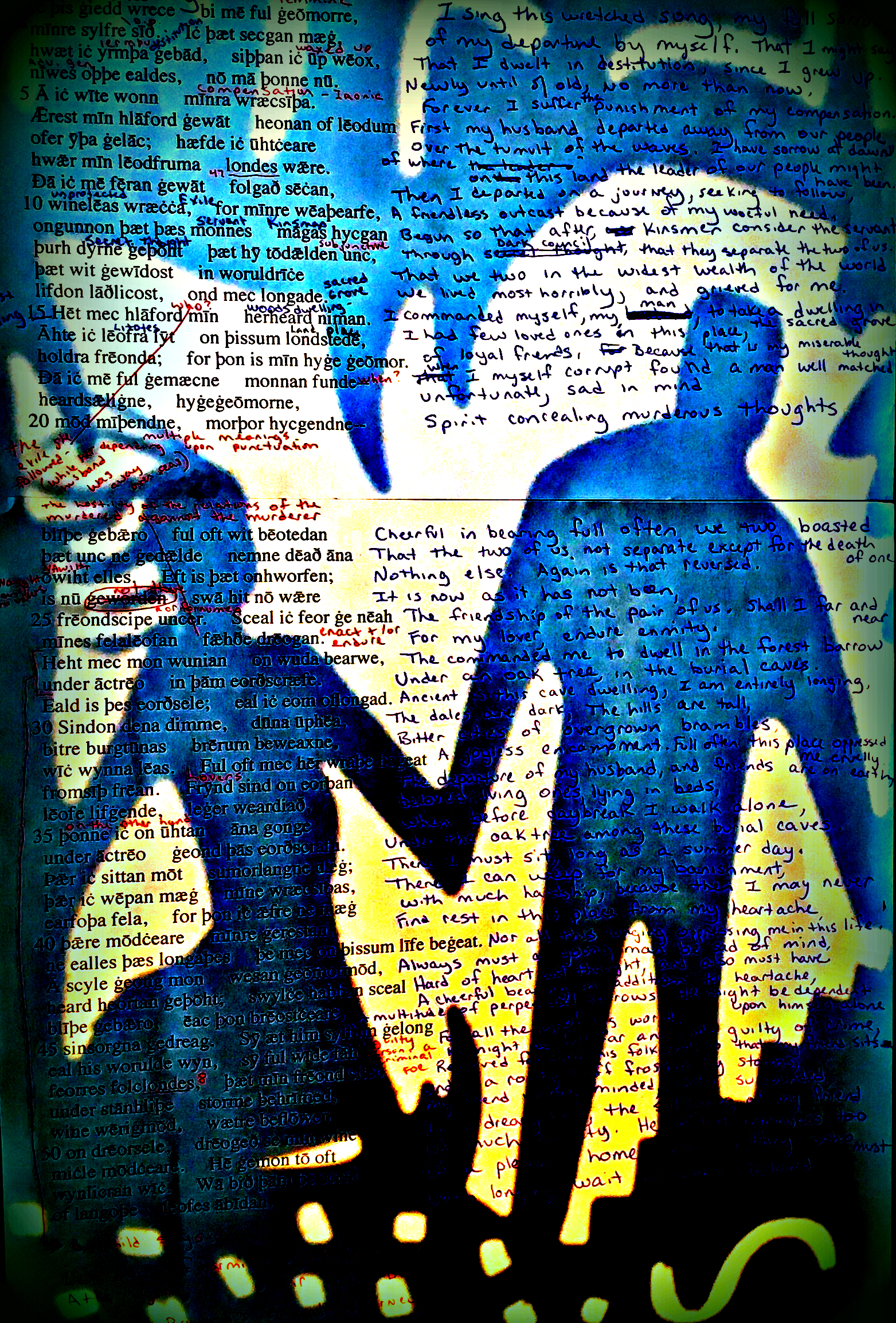 I sing this wretched song, my full sorrow
I sing this wretched song, my full sorrow
Of my departure by myself, that I might speak
That I dwelt in destitution, since I grew up,
Newly until of old, no more than now,
Forever I suffered my compensation, a journey of exile.
First my husband departed away from our people,
Over the tumult of the waves; I have sorrow at dawn
Of where on this land the leader of our people might have been.
Then I departed on a journey, seeking to follow
A friendless exile, because of my woeful need.
I began so that after, my kinsmen consider the servant
Through secret council, that they separate the two of us,
That we two, in the widest wealth of the world
Lived we most horribly, and grieved for me.
I commanded myself, my man, to take a dwelling in the sacred grove,
I had few loved ones in this place
Of loyal friends, because … More
How to make a Torch
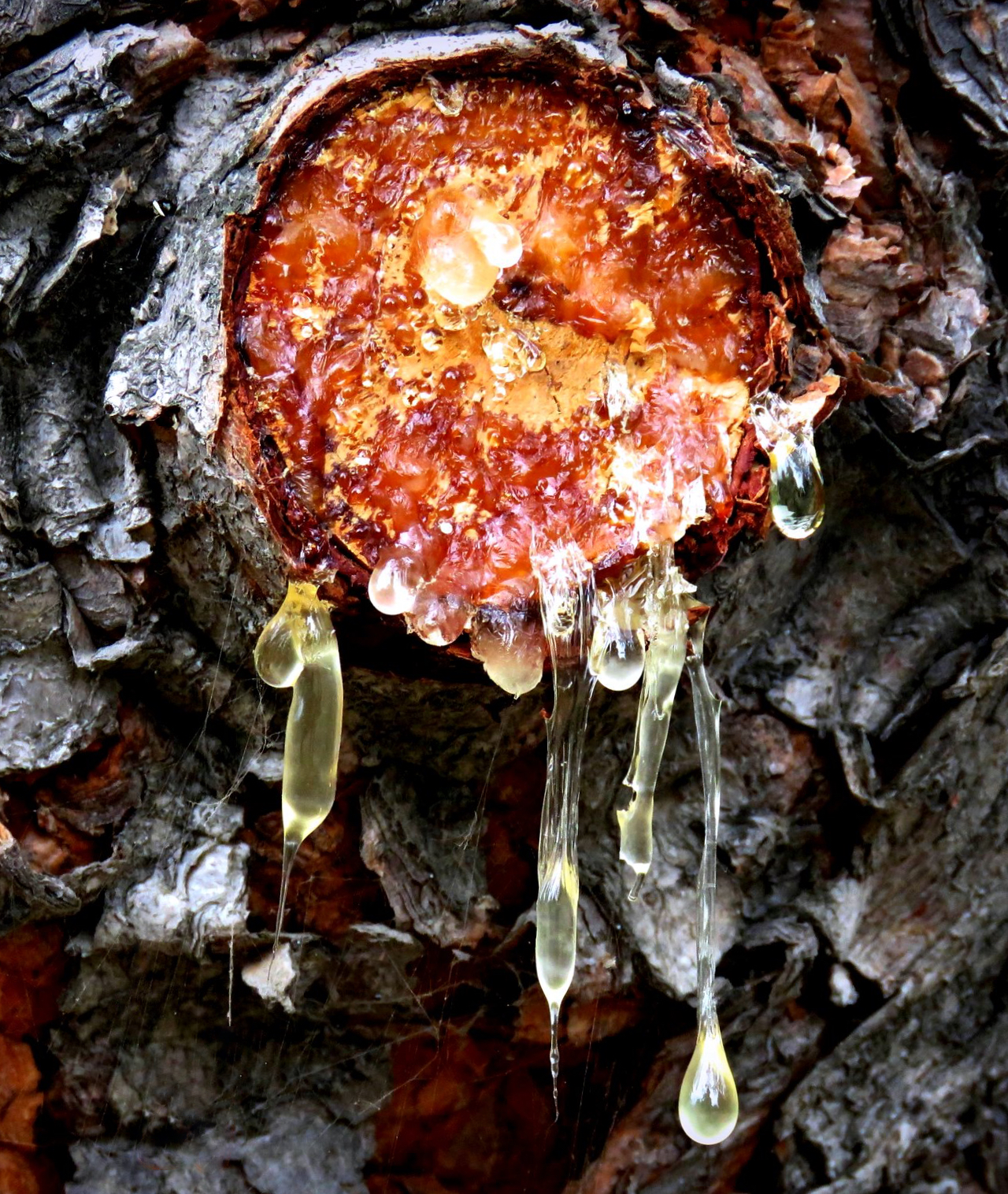 Find a pine tree, a nice sticky one full of resin, that stuff will burn in rain. Look for dead branches, go for one near the base of the tree and cut it off as close to the trunk as possible. You’ll know when you find a good one.
Find a pine tree, a nice sticky one full of resin, that stuff will burn in rain. Look for dead branches, go for one near the base of the tree and cut it off as close to the trunk as possible. You’ll know when you find a good one.
Split the end of the branch with an axe four ways, north south east west, quarter it. Cut down several inches. Break nothing off.
Carve out some kindling from the inner edges of your cuts. Shave it out, make an X of airflow. Fill the X with the shaved bits. Now fill the X with fire. Try not to burn the place down.
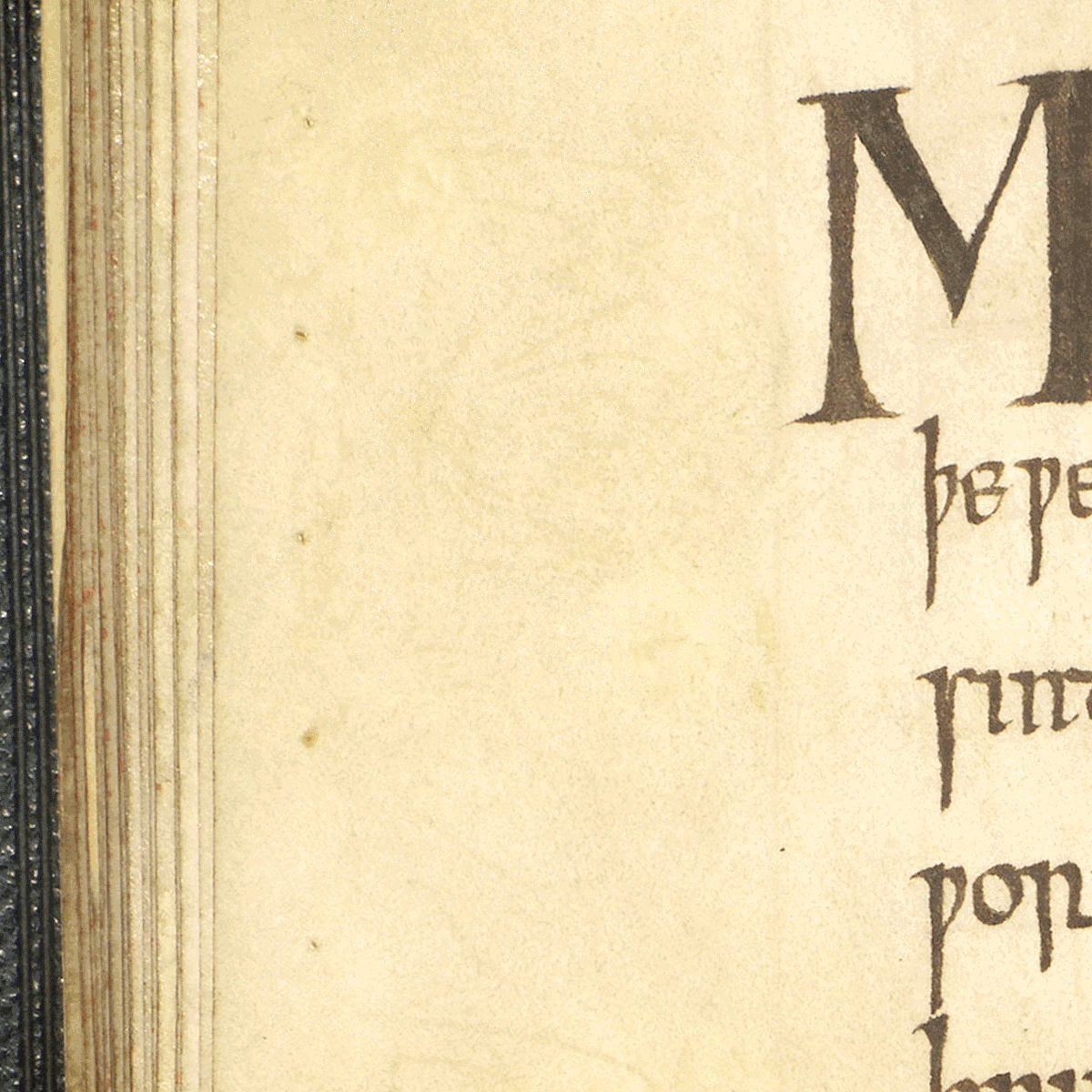
Translating Ac
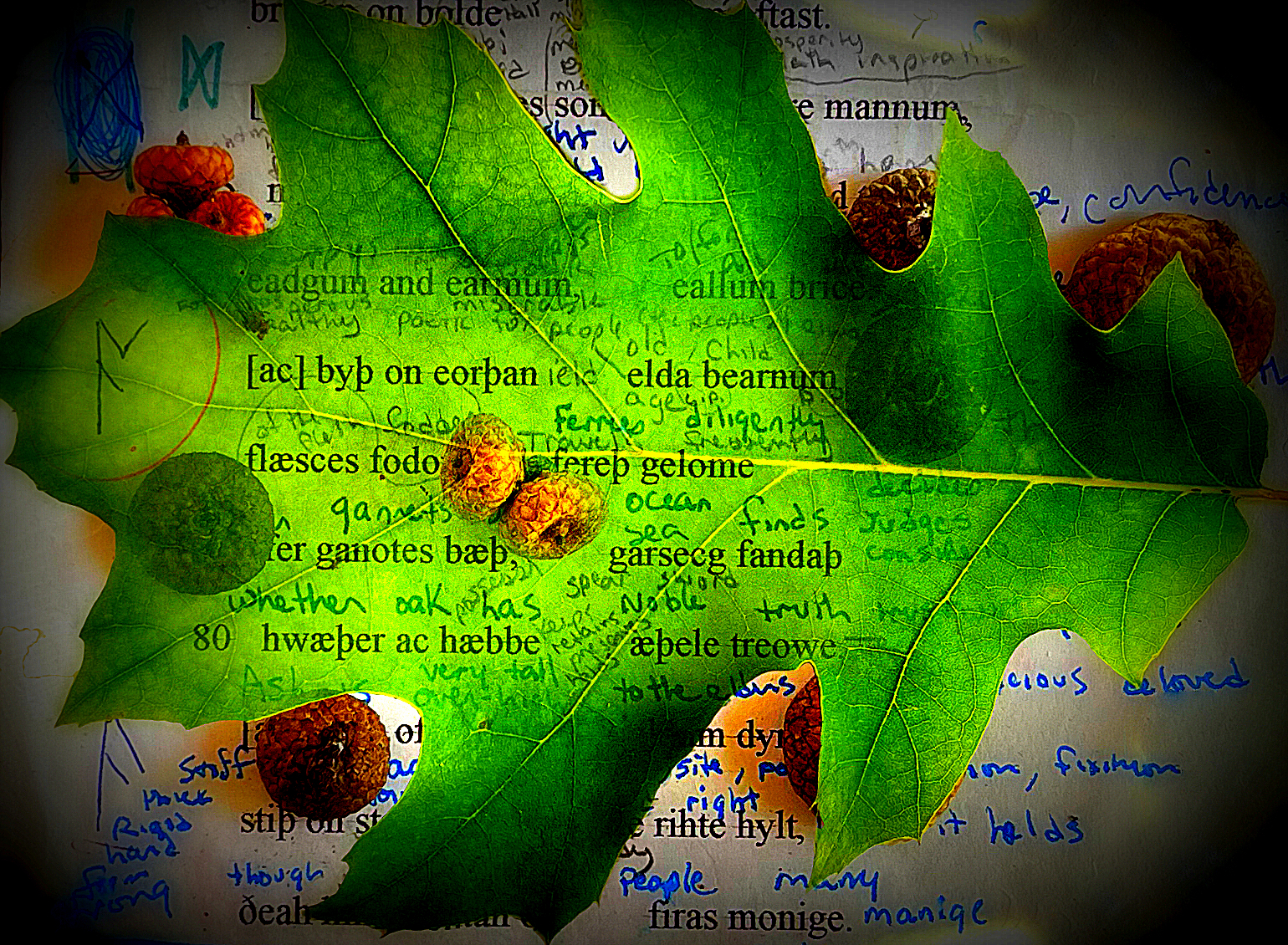 The Ac stanza is a bad riddle because the answer to the riddle is right there in the wording. Since when does an Old English riddle include its answer? I’ll tell you when. Never. That’s when.
The Ac stanza is a bad riddle because the answer to the riddle is right there in the wording. Since when does an Old English riddle include its answer? I’ll tell you when. Never. That’s when.
The Ac stanza is a good riddle because if it’s not Ac, then what is it? Hwæt? And if it does mean oak why does this riddle get to be so transparent? Let’s see if we can shine a light on it.
Clue: A line of Old English poetry starts with three alliterating stresses, three words that start with the same letter, and ends with a fourth stress that does not alliterate. The answer to the Rune Poem’s riddles is always the missing first word, so the first clue is always to be found in the beginnings of the next two stressed words: eorþan (earth) and elda (age). The answer to this riddle must be a word … More
How to Make Ink
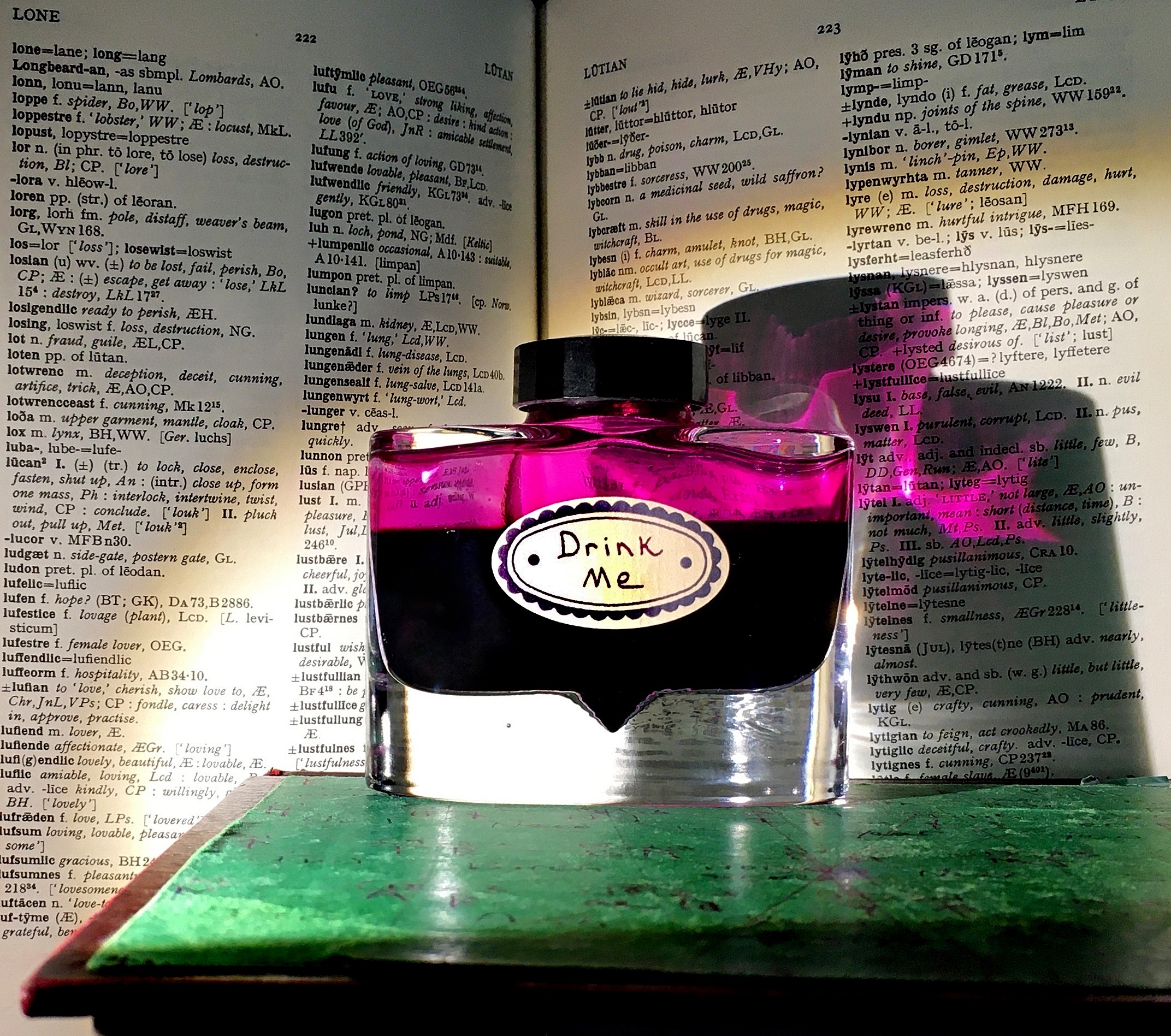 Ingredients (alphabetical order):
Ingredients (alphabetical order):
Cloth (warp + weft): strains.
Ferrus Sulfate (iron + sulfuric acid): darkens.
Gum Arabic (acacia tree + patience): thickens, adheres.
Hammer (metal + wood): pulverizes.
Jar (sand + soda ash + limestone): contains.
Oak Galls (wasp + oak tree + time) colors.
Rain Water (hydrogen + oxygen + gravity): soaks, extracts.
Sun (hydrogen + helium): transforms, perfects.
Smash O into bits with H. Put into J, cover with R and leave in S for three days, strain through C and return liquid to J. Dissolve G in R. Add G and F to J.
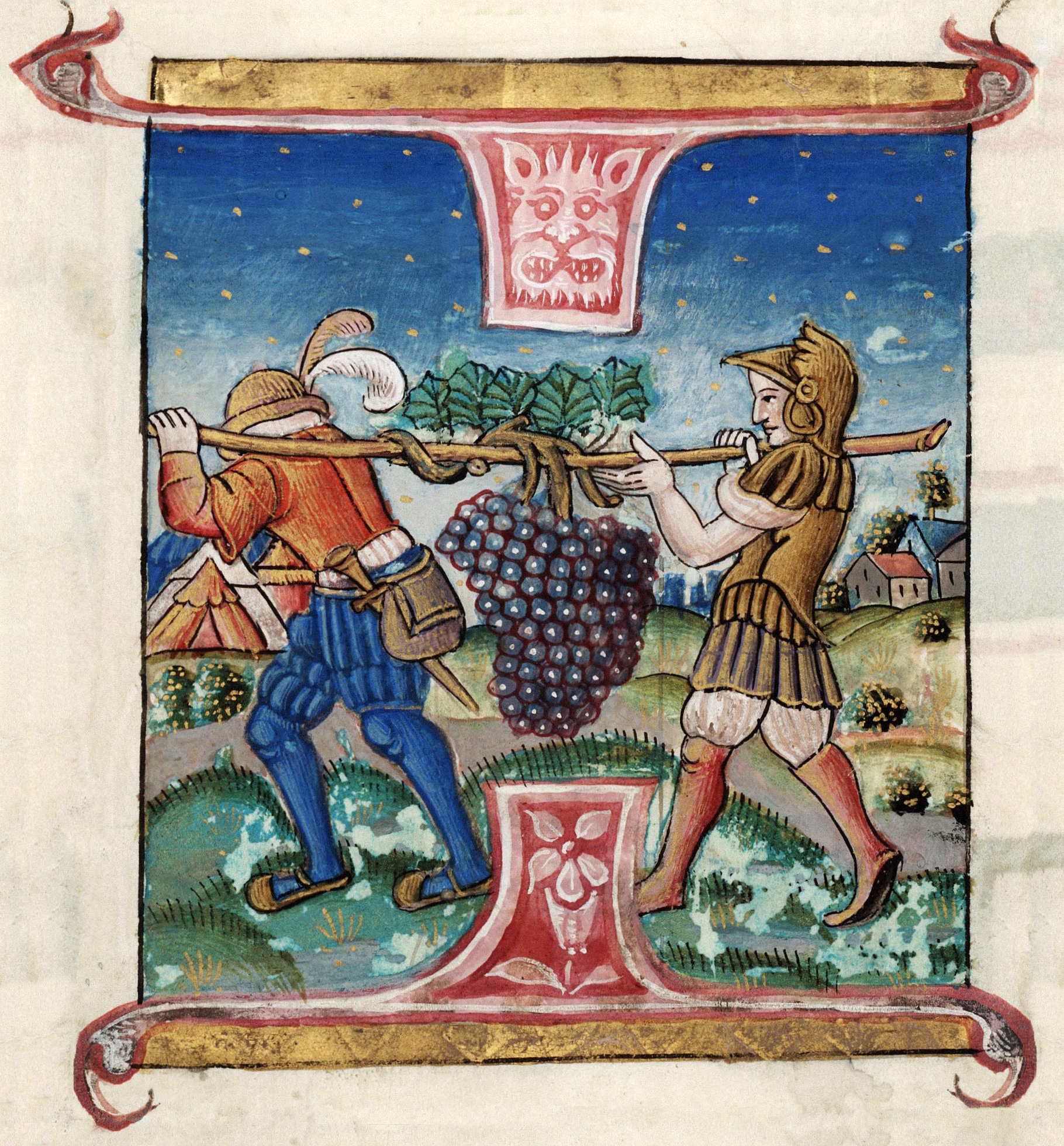
Crann Bethadh
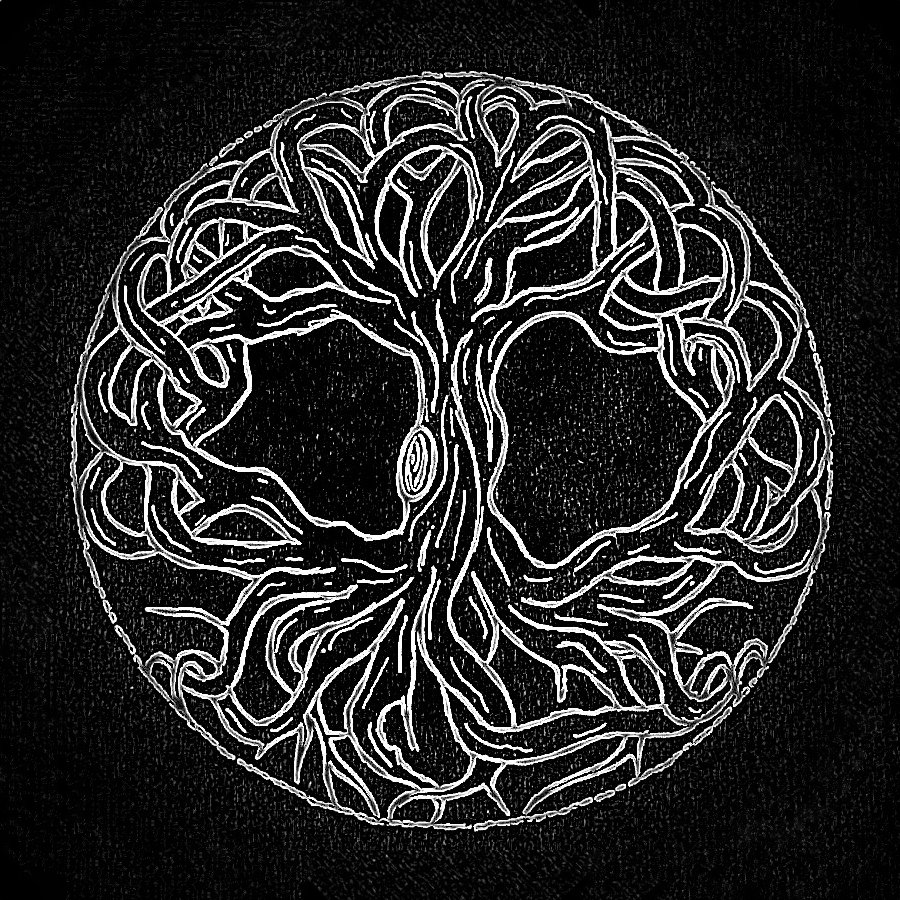 Crann Bethadh means tree of life in Old Irish. It’s an oak tree. The Celts used to plant them in the centers of their villages where they could be the axis mundi, the pillar holding everything up, the pivot around which it all turns. It’s a sacred world tree, and an older one than the one in the Old English Rune Poem, which stand right there next to it in order. In the Rune Poem, oak is the letter A, which comes right after D. In the Ogam alphabet written down in Old Irish, D is an oak. When they needed new runes for new sounds and invented the oak rune, they kept it close to its roots.
Crann Bethadh means tree of life in Old Irish. It’s an oak tree. The Celts used to plant them in the centers of their villages where they could be the axis mundi, the pillar holding everything up, the pivot around which it all turns. It’s a sacred world tree, and an older one than the one in the Old English Rune Poem, which stand right there next to it in order. In the Rune Poem, oak is the letter A, which comes right after D. In the Ogam alphabet written down in Old Irish, D is an oak. When they needed new runes for new sounds and invented the oak rune, they kept it close to its roots.
The Ogam alphabet uses bríatharogam to describe each letter name. These are two word descriptions that act as riddles or metaphors and work in a similar way to Old English kennings, which are either compound … More
ᚪ
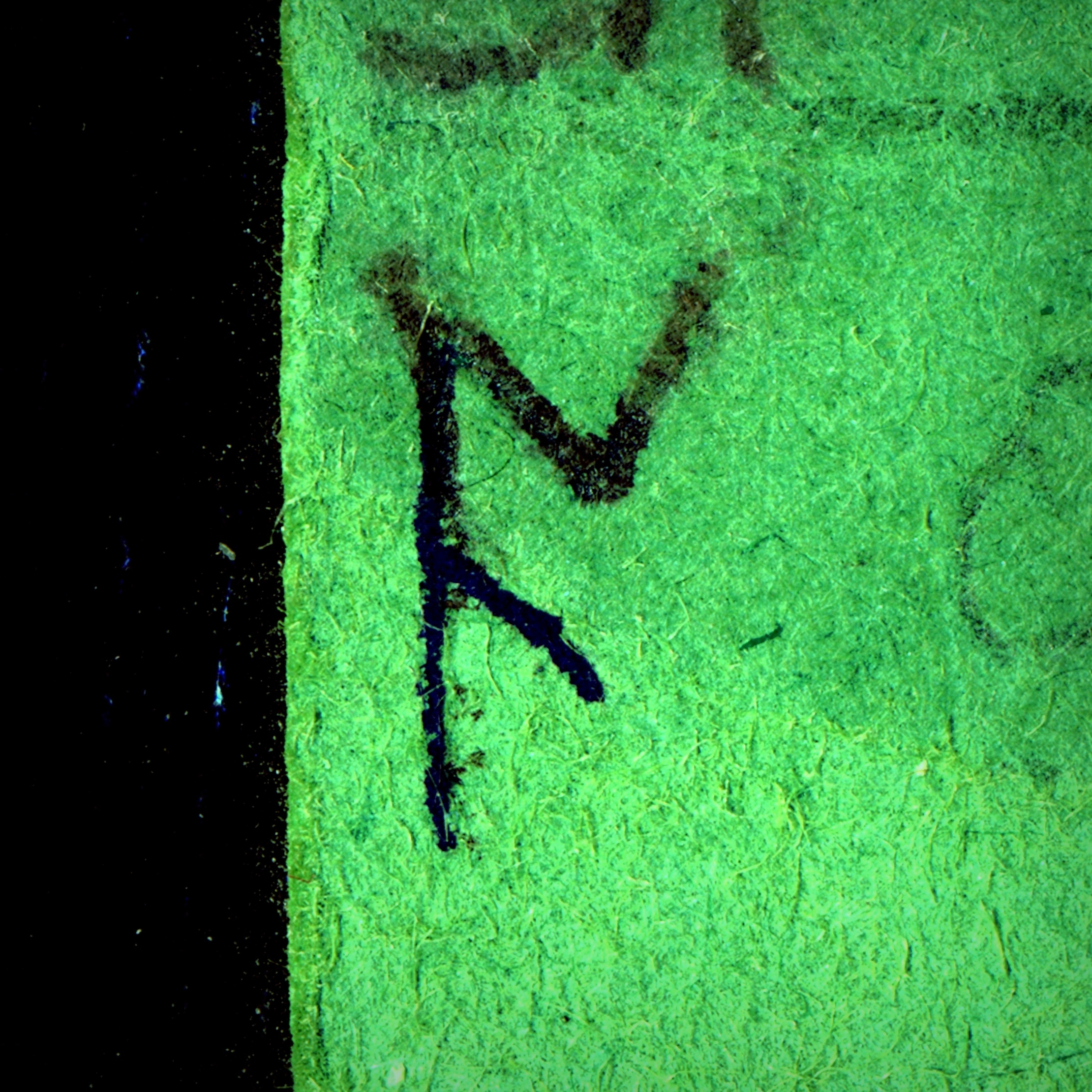 In the Old English Rune Poem the letter A means oak. This was the most sacred tree in most Celtic societies and to the Baltic cultures living east of the Rune Poem’s people, where Ing went. In the Ogam alphabet, the earliest form of writing in Ireland, Oak is the letter D. D comes right before A in the Rune Poem alphabetic sequence, it’s adjacent, and the next letter after that is the another one of the sacred world trees, the Ash, Æ. The Old English Rune Poem plants the oak next to family and its own sacred tree.
In the Old English Rune Poem the letter A means oak. This was the most sacred tree in most Celtic societies and to the Baltic cultures living east of the Rune Poem’s people, where Ing went. In the Ogam alphabet, the earliest form of writing in Ireland, Oak is the letter D. D comes right before A in the Rune Poem alphabetic sequence, it’s adjacent, and the next letter after that is the another one of the sacred world trees, the Ash, Æ. The Old English Rune Poem plants the oak next to family and its own sacred tree.
A is an older sound in Old English than Æ or O. A became both of these letters, vowels are slippery like that. They pass through your mouth unrestricted by teeth or tongue or closed lips, so with all that out of the way, it’s only mouth shape and air flow that makes the … More
Translating Æsc

The ash tree is oferheah. Over-high. Tall. And it grows from nothing: the smallest sapling can become something oferheah, massive, with root systems that are fairly shallow, but more extensive than most other trees growing in similar habitat. No wonder the stanza says it is stiþ on staþule, firm in its foundations. With far spreading roots like that it will stede rihte hylt, steadily and rightly hold firm in conditions that might cause another tree to topple. The wood from an ash tree is firm in another way too, it is a particularly hard wood and its grain grows straight, which makes it the ideal wood for a spear: it can take a powerful blow without splintering. Several blows. It also makes fantastic handles for axes and daggers. This is why the Rune Poem says him feohtan on firas monig: many people fight it, it made great weapons.
Don’t fight the … More
Translating Os
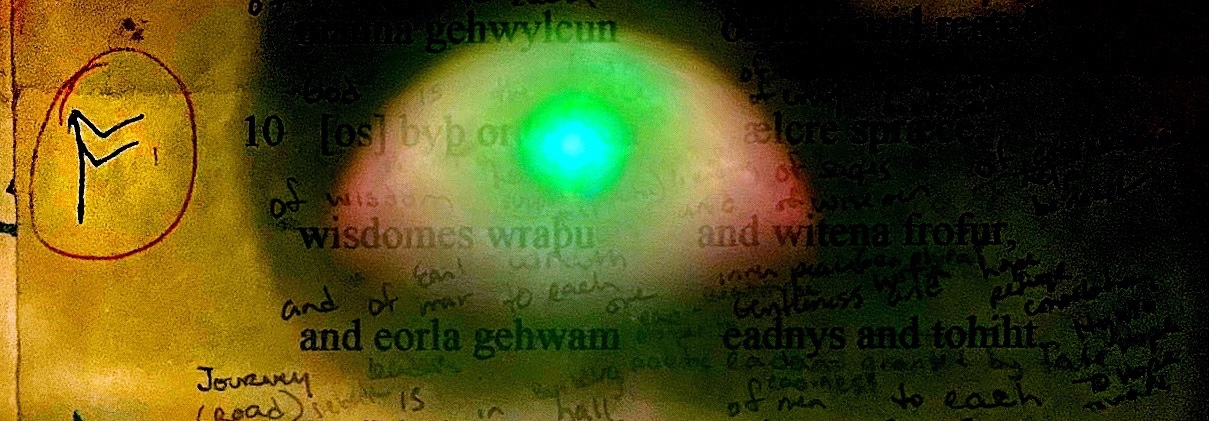 Os means God, non specified, though this stanza might be talking about a specific one. There are other specific gods in the Rune Poem. Tiw is here. So is Ing. We don’t know much about Ing. We don’t know much about any of the Gods the rune carvers were listening to. We do know the Nordic ones thanks largely to the thirteenth century Icelandic poet Snorri Sturluson, who compiled folk traditions into stories for a Norse king who liked his entertainment. Britain also being a North Sea culture, there was plenty of overlap. There’s not much written about the deities in Old English, though. Most everybody doing the writing was Christian, so. They had an agenda. These Christians preferred a reduction of the Gods down to a singularity, a point encompassing all other points, so the extra Gods they’d encounter tended to disappear.
Os means God, non specified, though this stanza might be talking about a specific one. There are other specific gods in the Rune Poem. Tiw is here. So is Ing. We don’t know much about Ing. We don’t know much about any of the Gods the rune carvers were listening to. We do know the Nordic ones thanks largely to the thirteenth century Icelandic poet Snorri Sturluson, who compiled folk traditions into stories for a Norse king who liked his entertainment. Britain also being a North Sea culture, there was plenty of overlap. There’s not much written about the deities in Old English, though. Most everybody doing the writing was Christian, so. They had an agenda. These Christians preferred a reduction of the Gods down to a singularity, a point encompassing all other points, so the extra Gods they’d encounter tended to disappear.
The word Os was disappearing too, by the … More
Speech Bearer
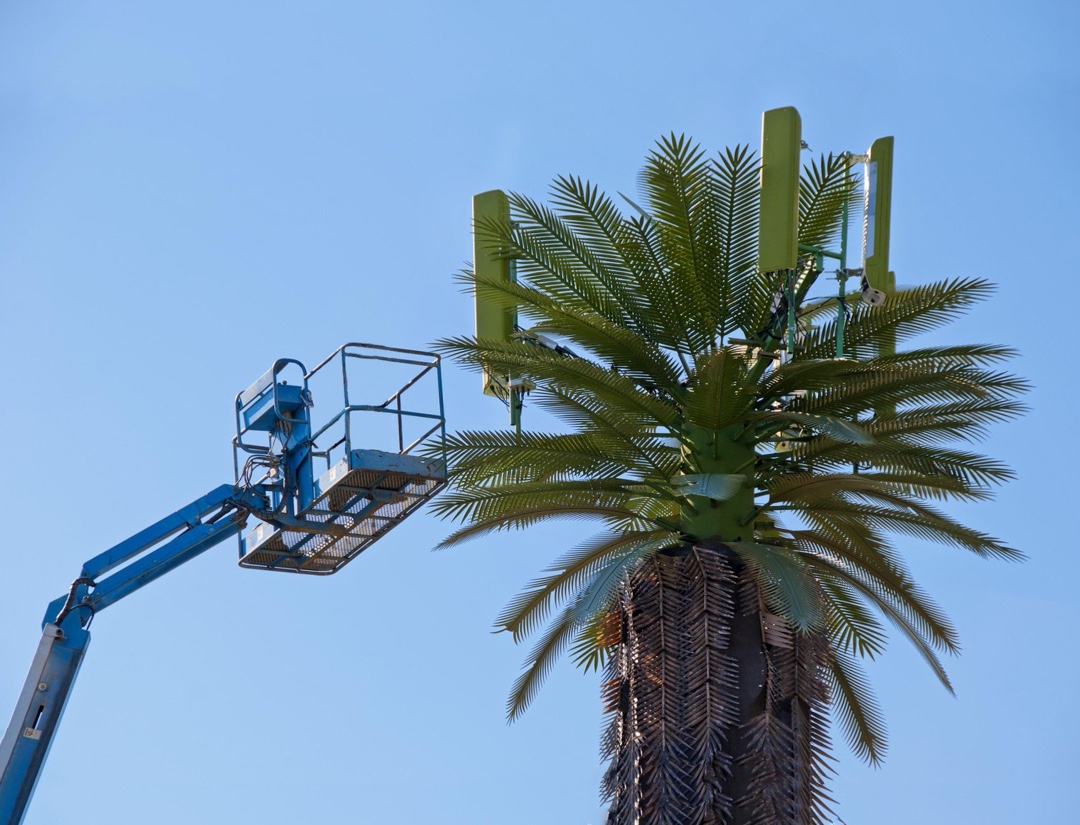 Reordberend the tree called me,
Reordberend the tree called me,
It says I am a speechbearer.
It thinks I am an odd little tree,
A small beech or confused shrub in error.
It looks to me, I said to this tree
That you’re the one who’s confused.
Don’t you see? You’re talking for me,
If you say you’re a tree it’s a ruse.
Truth
 Did you know that tree means truth? Well it does, honestly, let me be the first to tell you so you know it’s true. The Old English word treow means both tree and truth. Lots of Old English words use treow in them to mean things like to trust or believe (treowan), or to be faithful (treowfæst, truth-fast). Treow is used for more woody things too, like when you take your treowfæstnian (trusty) ax to the treowsteall (a grove) to work as a treowwyrtha (carpenter) treowfeging (joining boards together) into a treowgeweroc (tree work, something made of wood). In that treow grove you’ll find forest birds (treowfugol) and faithful friends (treowgeðofta) who’ll go in for a little tree worship (treowweroðung) with you and with whom you might find treowlufu (true love). Watch out for the treowles and treowleasnes.
Did you know that tree means truth? Well it does, honestly, let me be the first to tell you so you know it’s true. The Old English word treow means both tree and truth. Lots of Old English words use treow in them to mean things like to trust or believe (treowan), or to be faithful (treowfæst, truth-fast). Treow is used for more woody things too, like when you take your treowfæstnian (trusty) ax to the treowsteall (a grove) to work as a treowwyrtha (carpenter) treowfeging (joining boards together) into a treowgeweroc (tree work, something made of wood). In that treow grove you’ll find forest birds (treowfugol) and faithful friends (treowgeðofta) who’ll go in for a little tree worship (treowweroðung) with you and with whom you might find treowlufu (true love). Watch out for the treowles and treowleasnes.
Tree and truth were more than … More
Axis Mundi
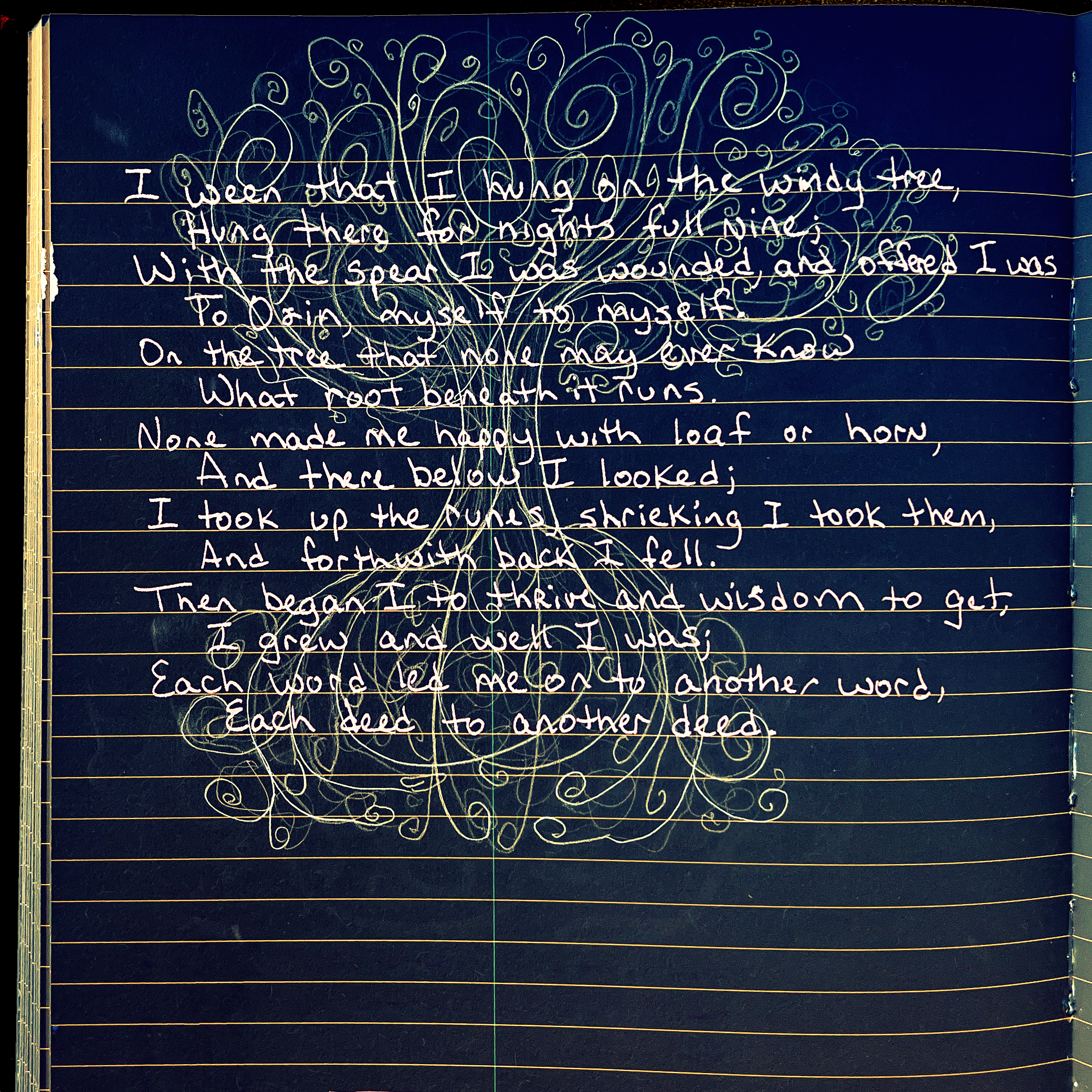
Archaeologists in their digging and dating trace the oldest runic alphabet back to the late second century. The oldest rune carvings are often of the alphabet itself, carved in order. They’ve found runes etched into durable things like rock, metal, bone, but sometimes the odd piece of wood might survive. These earliest rune carvings have been found all over Northern Europe, even on occasion as far south as France, but most particularly around the Baltic Sea Coast. The messages would be brief, saying things like Vern made me. Not an actual Vern, there was no V. I’d carve this here if I could, carve it into light, but I’d have to use my own V.
The earliest runic inscriptions reveal no memory that the runes came from a prior alphabet, though they line up beautifully with several Latin letters, and correspond even more closely to Etruscan, the language of ancient northern and central … More
The Ogam Ash Tree
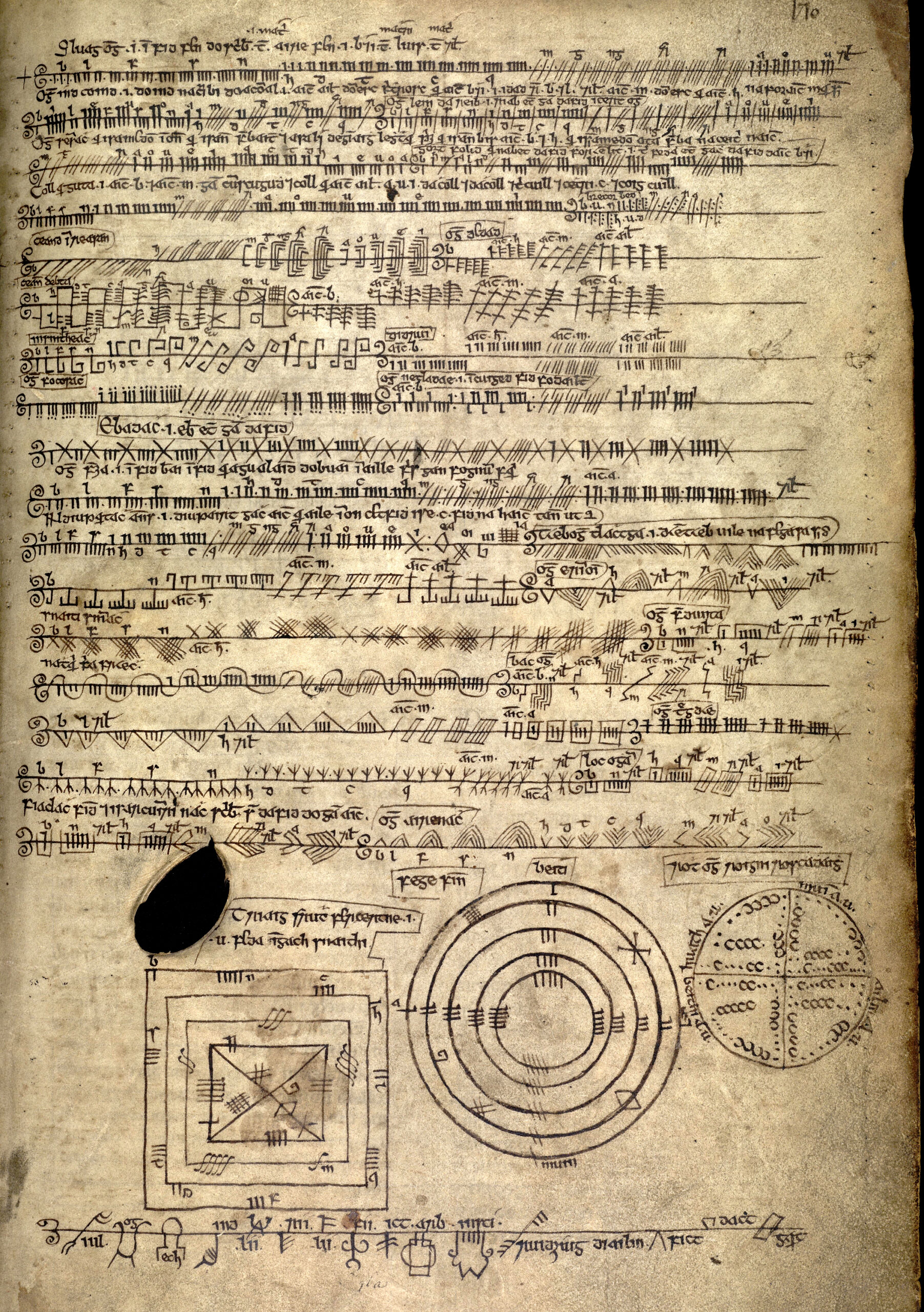 Ogam, spelled Ogham in modern Irish, is an Old Irish alphabet, it was possibly a cryptographic alphabet like the runic ones, and it may have had its own sign language and musical notation. The Ogam letters have names like the letters in the Rune Poem, and the letters have meanings we can glean from three collections of kennings, or Briatharogam (literally word-letters): words paired portmanteau style to make new meanings. It’s like a mini version of the Rune Poem’s riddles: two words give the clue instead of a whole stanza. These people understood how to work with brevity.
Ogam, spelled Ogham in modern Irish, is an Old Irish alphabet, it was possibly a cryptographic alphabet like the runic ones, and it may have had its own sign language and musical notation. The Ogam letters have names like the letters in the Rune Poem, and the letters have meanings we can glean from three collections of kennings, or Briatharogam (literally word-letters): words paired portmanteau style to make new meanings. It’s like a mini version of the Rune Poem’s riddles: two words give the clue instead of a whole stanza. These people understood how to work with brevity.
It is popular for people to think that all letters in the Ogam alphabet were always named after trees, and though there is a substantial grove of at least eight of them in the Ogam alphabet, there’s other stuff in there too. Take a look at the kennings for the letter R, ᚏ: tindem rucci… More
X≠Y≠Z: How to Punch a Tree
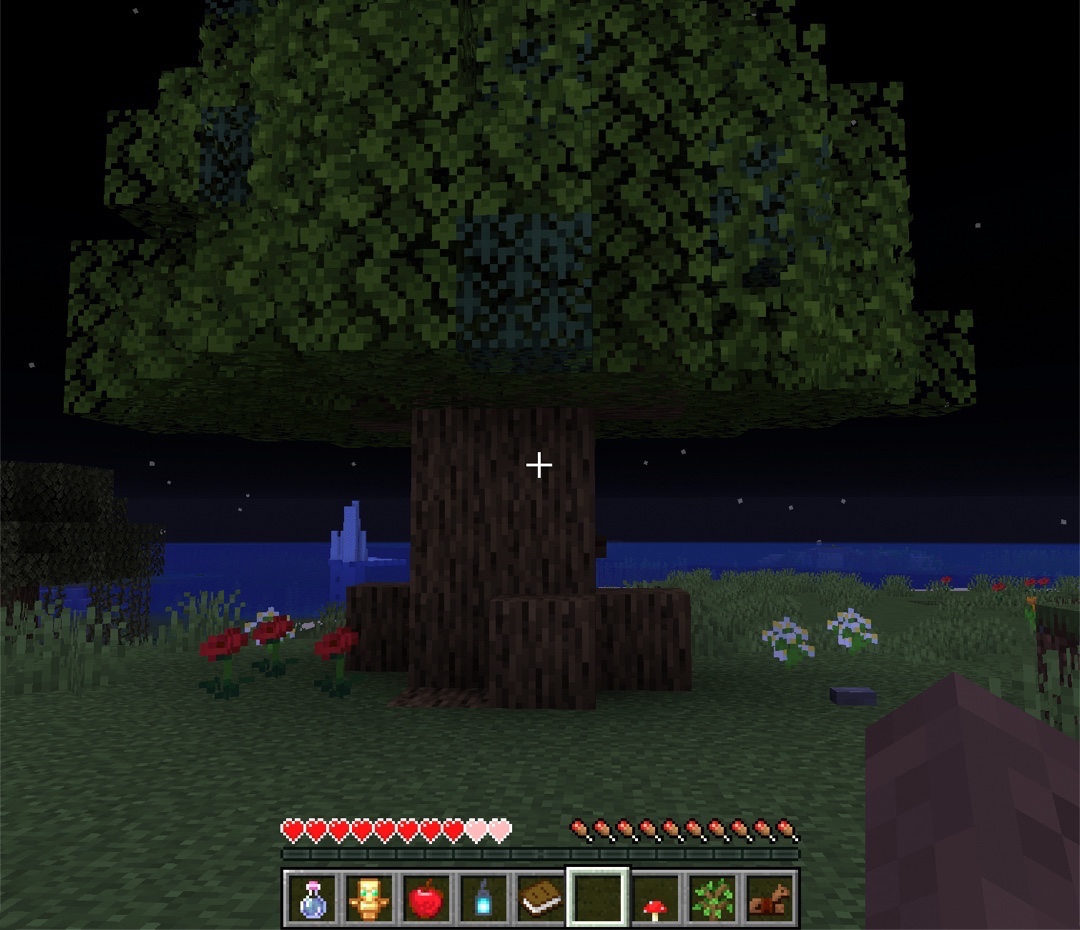
X: The sun’s going down.
Y: Wait, how do I run?
X: Control W, no hold it down.
Z: Don’t lose my stuff.
Y: How would I lose your stuff? Wait, I’m stuck. Where am I? Is this a hole?
X: Spacebar
Y: What?
X: Spacebar to jump. Ok. So we need to find a tree.
Y: What for?
X: We need to punch the tree.
Y: We’re going to fight a tree?
X: No, we need to get wood to make things. And we need shelter before something gets us. Ok, punch this tree.
Y: Wait, what? What something? How do I punch the tree?
X: Left click. No, go closer, now left click. We really should be building a shelter.
Y: The tree doesn’t fall? It just stays there with the middle missing?
X: They don’t fall over. You have to get under it and punch up if you want all the wood.… More
ᚫ
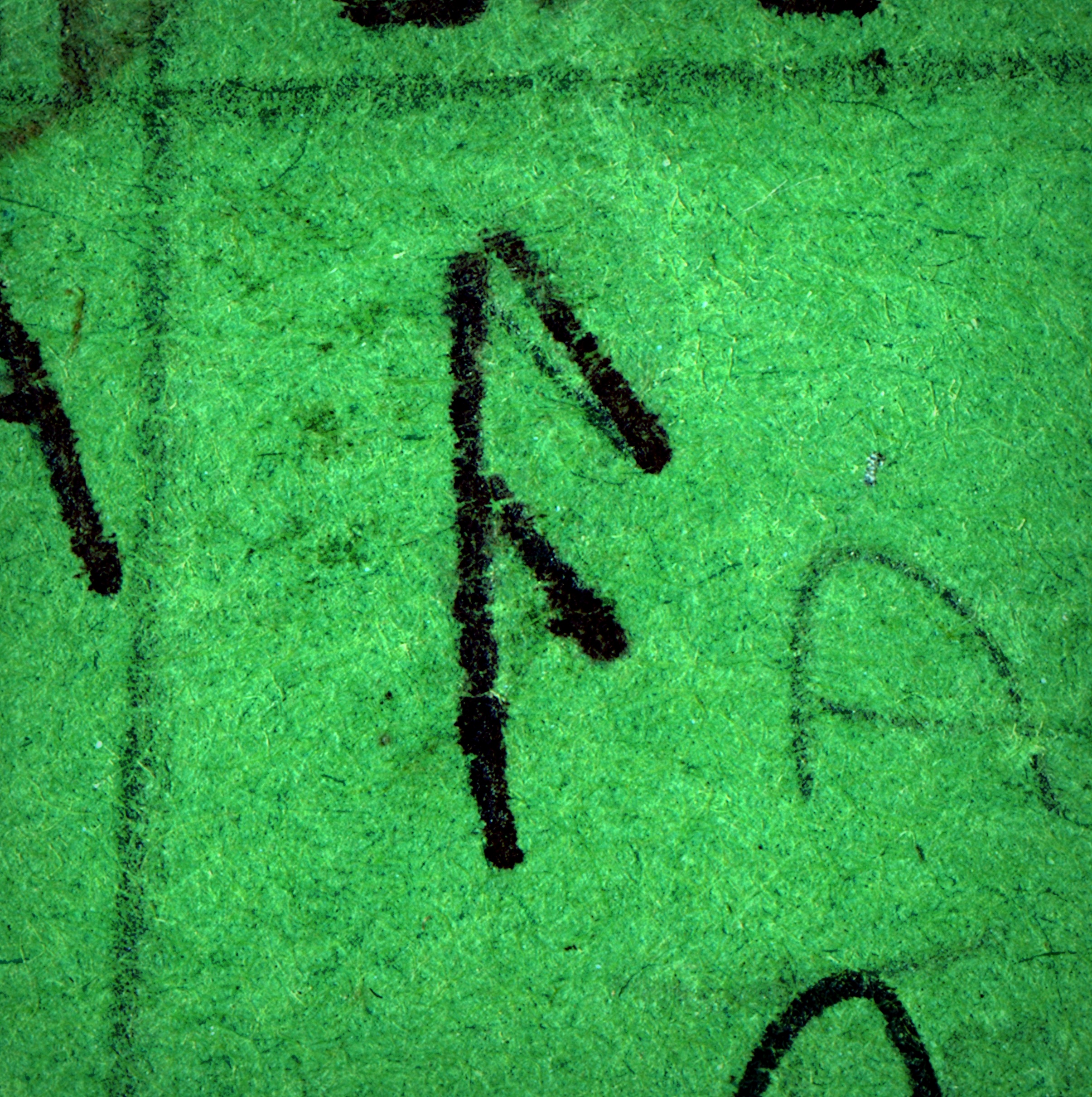 The ᚩ rune (O, Os) and the ᚪ (A, Ac) both started the same way, as new shapes of the ᚫ rune (Æ, Æsc) which once made the sound of the letter A, stood in the fourth position of the alphabet, and meant God. The A sound changed very early in the lifetime of Old English, vowels are shifty, and this one changed into O and Æ, so new runes were made with new meanings to represent the new sounds, and appropriate places were found for them in the alphabetic line up. Æ, sounds like the A in ash tree, which is its meaning, this is one of a whole grove of trees in the Rune Poem. It kept the original rune shape ᚫ while the others are derived from it, and was moved opposite it’s original 4th position to the 26th place. They put it there so it can … More
The ᚩ rune (O, Os) and the ᚪ (A, Ac) both started the same way, as new shapes of the ᚫ rune (Æ, Æsc) which once made the sound of the letter A, stood in the fourth position of the alphabet, and meant God. The A sound changed very early in the lifetime of Old English, vowels are shifty, and this one changed into O and Æ, so new runes were made with new meanings to represent the new sounds, and appropriate places were found for them in the alphabetic line up. Æ, sounds like the A in ash tree, which is its meaning, this is one of a whole grove of trees in the Rune Poem. It kept the original rune shape ᚫ while the others are derived from it, and was moved opposite it’s original 4th position to the 26th place. They put it there so it can … More
ᚩ
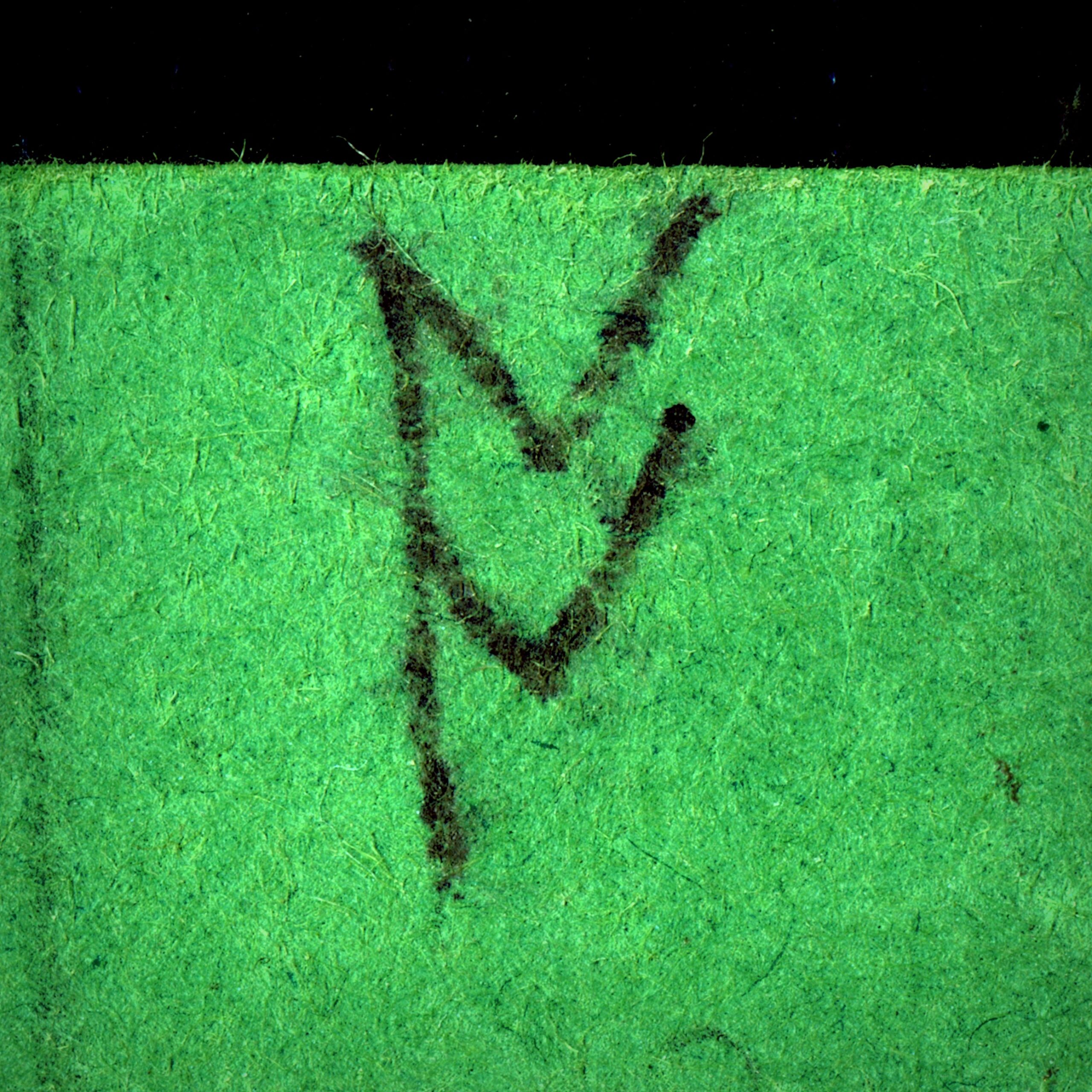 Vowels are slippery things. They shift around and we have to learn which sound differences to ignore as another person’s accent and which ones change meaning. In the earliest times of Old English history the sound of the letter A changed so much it became three letters, A (ᚪ), O (ᚩ), and Æ (ᚫ). The ᚫ rune was the original rune shape for the A sound and stands in the 4th position in the Norwegian and Icelandic runic alphabets where it makes the sound for the letter A and means God. In the Old English runic alphabet, ᚩ (Os) holds the 4th position where it still means God, but here it makes the sound O. Smote. Lot. That God that smote you is a lot. The O sound was once made by the ᛟ rune, Eþel, but by the time they wrote down the Rune Poem, Eþel was already slipping … More
Vowels are slippery things. They shift around and we have to learn which sound differences to ignore as another person’s accent and which ones change meaning. In the earliest times of Old English history the sound of the letter A changed so much it became three letters, A (ᚪ), O (ᚩ), and Æ (ᚫ). The ᚫ rune was the original rune shape for the A sound and stands in the 4th position in the Norwegian and Icelandic runic alphabets where it makes the sound for the letter A and means God. In the Old English runic alphabet, ᚩ (Os) holds the 4th position where it still means God, but here it makes the sound O. Smote. Lot. That God that smote you is a lot. The O sound was once made by the ᛟ rune, Eþel, but by the time they wrote down the Rune Poem, Eþel was already slipping … More


